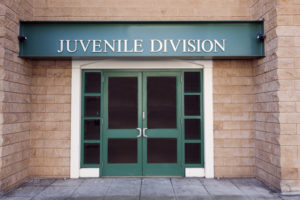The state’s probation officers are advocating for change.

In California, when a person under the age of 18 is accused of committing a crime, the case is typically handled through the juvenile justice system (with some exceptions for serious or violent felonies). This system has a different focus than the adult criminal justice system, with a main focus on rehabilitating youthful offenders so that they change their behavior.
A new proposal by the Chief Probation Officers of California (CPOC) would significantly change California’s laws by extending the age for the juvenile justice system. Under this proposal, 18 and 19 year olds would be considered juveniles. In addition, youth who are involved with the criminal justice system could remain in facilities run by the probation system until they are 24 (rather than the current age of 21). As a criminal defense attorney in Riverside, CA can explain, under current law, the juvenile justice system only handles cases involving individuals under the age of 18.
If California were to enact this law, it would join Vermont as one of two states that allows youth over the age of 18 to have criminal offenses heard in the juvenile justice system. Other states have considered raising the age for the juvenile justice system as well.
CPOC argues that this change is necessary to ensure that more youth are in rehabilitation programs. They claim that doing this will help to prevent youthful offenders from committing crimes as adults. Opponents charge that CPOC is pushing this proposal not to help young people, but to protect their own jobs. Currently, juvenile halls in California are at 25% capacity, and the rate of juvenile arrests has plummeted across the state. Advocates argue that CPOC has always opposed raising the age before — and that this is just a ploy to keep its members employed.
In 2018, there were 14,400 felony arrests of 18 and 19 year olds in California. This number is almost as high as the total number of felony arrests for all juveniles between the ages of 10 and 17. If this proposal is approved, the number of teenagers who are processed, diverted, detained and incarcerated in California’s juvenile justice system will nearly double.
While there is plenty of evidence that even older teenagers’ brains have not fully developed and that they are more prone to impulsive actions, community activists believe that this proposal is a direct response to their advocacy. Organizations dedicated to young people involved in the system have convinced cities such as Los Angeles to examine closing juvenile halls and incarceration centers. They argue that community-based diversion and rehabilitation programs are a better choice for helping teens.
It is unclear whether this proposal will succeed. While there are benefits to having 18 and 19 year olds processed in the juvenile justice system rather than as adults, an overhaul to the law may undo the work of activists who are pushing the state move away from the incarceration of juveniles. Either way, this debate is a sign that the issue of juvenile justice is at the forefront of California’s reform movement.
If you or your child have been charged with a crime as a juvenile, the Chambers Law Firm can help. We work with both adults and juveniles throughout California, advocating for their rights throughout the process. To learn more or to schedule a free initial consultation with a criminal defense attorney in Riverside, CA, contact us today at 714-760-4088 or dchambers@clfca.com.




